The COVID19 health crisis has created a lot of new demands on learners, their teachers and especially their parents. Unless the child is lucky enough to have a trained teacher in the house, who also has time to monitor and teach, the classroom on the couch can be a daunting place. What can the at home teachers do? Here’s a starter kit of ideas to bring some structure and fun to the learner who is watching videos, going to class on Zoom and navigating many types of materials online.
“We sometimes assume that kids are digital natives, and they are really going to know how to behave, but, actually, a lot of those behaviors don’t transfer when you’re trying to adjust to a class environment,”
J. Christine Greenberg, The Harbour School’s pre-K through eighth grade principal. (Hong Kong)
Tech Issues to address with parent or older student help:
- Transition to new devices: “The biggest challenge is what device they’ll be working on at home.” (Harbor 1-2nd Grade Teacher) Work up a short easy to follow cheat sheet on how to use mom’s old laptop instead of the new I-Pad at school with some activities to reinforce the lesson.
- Practice new software programs (Zoom, Canvas, Google Classroom): show them the ins and outs to keep them from getting frustrated during class or homework.
- Teach computer organization skills: Show them the processes of setting up flies, downloading and organizing Goggle Drives.
- Mind your digital manners (netiquette): Teach kids that their casual behavior with friends online isn’t appropriate for school online.
- Go over media literacy: “When it comes to finding good information, thinking critically about it, synthesizing it into information and knowledge that they can use, [children] are no better at it than anybody else.” (Greenberg)
Keep It Active
- Doing it is more efficient and effective than just watching or listening.
- Incorporate your hobbies, activities into the learning day.
- Birdwatching – dress up like an ornithologist and get out to the yard or park!
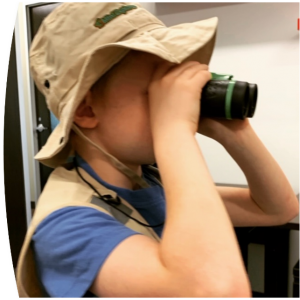
Give Them a Kit
- Learning, monitoring, succeeding with joint kits is a way to grab attention and maintain engagement.
- Put together materials and tools that mimic what they are asked to do online by their teachers. This is a kit for a young learner trying to learn sounds, letters and putting them together into words. The puppets give the child something to show on camera.
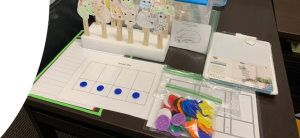
Practical Academic/Workplace Skills
- Note Taking from Online Materials: Many times, in high school American History students have to read original materials that can be confusing. For instance, how can they address the question, “What did it mean for women to exercise “leadership” in the American Revolution? Before that conflict, the question itself would probably have baffled most American women and men.”
- Demonstrate the “old school” and on the phone note taking skills that you use in your workplace.
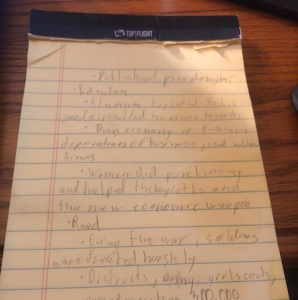
Mentoring – Ask for It!
- A district, EUSD San Diego, recruited mentors from employees whose duties had changed or been sidelined when schools closed in March to stop the spread of coronavirus. The district reassigned them as mentors and then trained and paired with students the science, music, yoga, P.E. or other teachers who taught special subjects but did not have their own classroom, staff who normally ran the before and after-school programs, and instructional aides, as well as monitors who once supervised lunchtime activities and campus safety.
- Mentors learned how to use Zoom and navigate the digital curriculum, established relationships with families, and worked up to 90 minutes daily with the student they were mentoring. They facilitated communications between teachers, parents and students, and provided a weekly summary and contact log to the teacher.
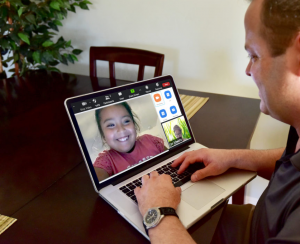
Jon Schwartz teaches music at Encinitas Unified School District in San Diego County. When the district moved to distance learning in March, he began teaching music online to all 3rd-graders in the district.
Teach Resilience – For the kids and you!
- Mom, dads, siblings, and grandparents – use your experience and creativity to help out our new online learners.
- How about creating a student designed survival game based on the novel “Hatchet?”
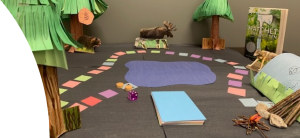
Dr. Kilmer taught Education graduate students on instructional television at three sites simultaneously, traditional online and hybrid (live and on-line)

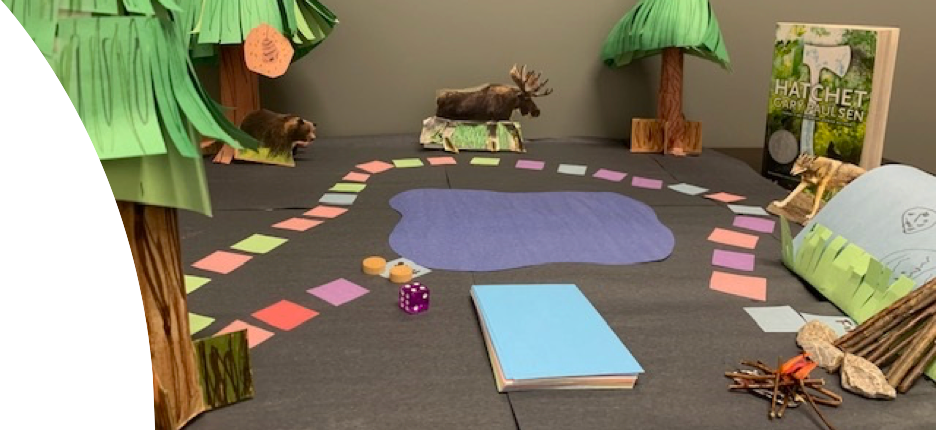




No Comments